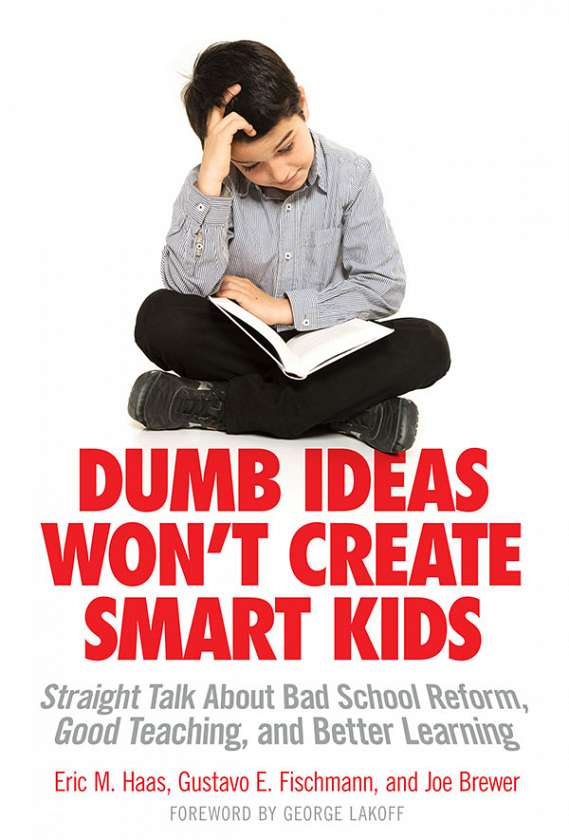Professors: Request an Exam Copy
Print copies available for US orders only. For orders outside the US, see our international distributors.
Eric M. Haas, Gustavo E. Fischman, Joe Brewer
Publication Date: July 18, 2014
Pages: 128

If you want to actually do something about providing excellent education for every child in America, this is the book for you. Using insights from cognitive science, educational research, and the social sciences, the authors examine the compelling nature of four “dumb ideas” at the center of current education policy and practice: (1) simplifying knowledge helps students learn more and faster, (2) teaching and learning are a matter of proper transmission of good content, (3) homogenous environments ease learning, and (4) more standardized data and rigorous controls of our schooling will solve all our problems. The authors then present research that consistently shows why smart K–12 education will not be achieved by current policies and practices, such as high-stakes standardized tests, homogenous grouping, and abbreviated teacher preparation. This lively book offers solutions for changing the harmful disconnect between our goals and the means we employ to get there, including key “smart ideas” and a set of how-to actions that will lead to great schools for every child.
Book Features:
Eric M. Haas is an education researcher and educator. Gustavo E. Fischman is a professor at Mary Lou Fulton Teachers College, Arizona State University. Joe Brewer is co-founder and research director of Culture2 Inc.
"This book is for teachers, administrators and community leaders who want to commit to doing something to improve their schools. It is for those educators who want to see smart students learn while avoiding the occasional time-consuming, resource- wasting dumb ideas."
—Reviewed by Darroll Hargraves, retired superintendent and consultant, School and Community Resources, Wasilla, Alaska
“If you care about saving public education, read this book!”
—David C. Berliner, Arizona State University
“This is perhaps the most important book you will read on the nature of education.”
—From the Foreword by George Lakoff, University of California, Berkeley
“Too many popular ‘reforms’ of today are barreling forward across the country despite compelling evidence that they do not work as touted. Haas, Fischman, and Brewer offer exquisite analysis of the ideas and metaphors that lead our subconscious minds to view some ideas as more commonsensical than others, and other metaphors that hold much more promise for addressing inequities in education.”
—Kevin Kumashiro, author of Bad Teacher! How Blaming Teachers Distorts the Bigger Picture
Professors: Request an Exam Copy
Print copies available for US orders only. For orders outside the US, see our international distributors.